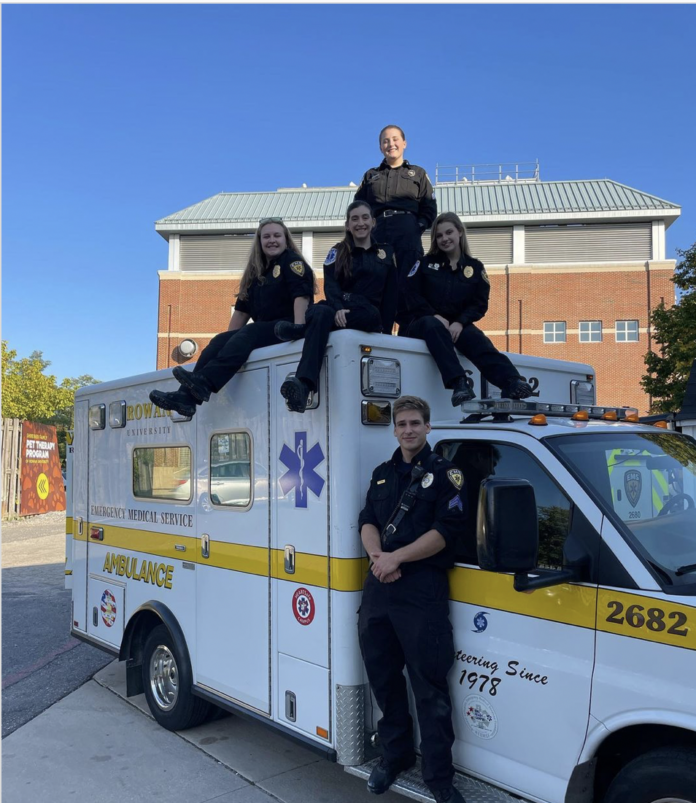Following new legislature passed last week, colleges and universities across New Jersey are now required to have a supply of naloxone nasal spray on campus for anyone experiencing an opioid overdose.
According to the bill, naloxone, also known as NARCAN Nasal Spray, must be maintained in one or more secure and easily accessible locations throughout the campus. The nasal spray must be housed by the institution in quantities and types that are deemed adequate by the governing board of the institution and with consultation with the Commissioner of Human Service and the Secretary of Higher Education.
A licensed campus medical professional will be designated to oversee the program for the maintenance and administration of the nasal spray on campus. This person will have the ability to designate members of the institution that include resident assistants, emergency respondents, campus security officers, and licensed athletic trainers to treat anyone experiencing an overdose.
However, the professionals will only be authorized to administer the spray after receiving the training required.
After receiving the nasal spray, the overdose victim must be transported to the emergency room by emergency services, even if the person’s symptoms appear to have resolved. This act will take effect on the first day of the fourth month following the date of enactment.
In an interview, Scott Woodside, director of the Wellness Center states that Rowan already has police and EMS that are carrying naloxone and know how to administer it.
“Our EMS and first responders have had naloxone for years as a part of our interventions to combat addiction and abuse,” said Woodside.
Woodside stated that Rowan is currently building protocols. A meeting was held with the State Health Department and representatives from all New Jersey universities to develop how they can further expand access to naloxone.
“We can train individuals in how to use it and what are the protocols afterward, which is probably the most important, not just having access to it, it’s what do you do after,” Woodside said.
Woodside shared that the state is offering to roll out a new, more digestible, easier-access education. They are also talking about making naloxone available to athletic directors, residential assistants, and even someone in greek life as these people could find themselves in a position to treat a victim. The Wellness Center will most likely be a collection point for the state resources and then be able to make sure there is training and appropriate distribution across the campus.
Bob Logan, a licensed substance abuse counselor at Rowan claimed, “Getting a young college population or most people to come in for substance use issues is a challenge.”
Logan stressed to The Whit that treatment is confidential and that their confidentiality is very rigid.
“One of the drawbacks I see with a student even coming and asking for it is their fear of getting in trouble or getting found out or so on and so forth,” said Logan.
Logan stated that naloxone isn’t just going to help opioid users, but can also treat cocaine use. According to Logan, there is a high risk for cocaine users as a lot of cocaine is cut with Fentanyl.
“I work at the hospital on weekends. I see it every weekend. It isn’t just the hardcore opioid user that’s concerned with naloxone and it’s the cocaine user and that’s a huge issue,” Logan said.
Data from the Office of Chief State Medical Examiner found that there were 2,647 suspected drug-related deaths in the past year. There were fewer drug-related deaths in 2022 than in 2021 with 3,124 suspected overdose deaths. NJ’s data also found that were 14,122 naloxone administrations last year, an increase from 2021 which had 10,092 administrations.
This comes after the announcement from Governor Phil Murphy that people 14 years and older will be able to request and get naloxone at pharmacies for free. This can be obtained by having to provide a name or without reason.
Rowan already provides opioid addiction prevention training for New Jersey mental health professionals. The live webinar course uses an evidence-based opioid addiction prevention curriculum to train and inform New Jersey mental health on the best practices in treatment available for patients suffering from opioid use disorder.
In 2021, the Cooper Medical School of Rowan University (CMSRU) was awarded $1.3 million to fund free treatment for patients without health insurance. The program centers will provide medication and other support to treat opioid addiction. The program center locations are Copper Health’s Center for Healing in Camden, Blackwood and Pennsvilla.
According to the bill, “The act will take effect on the first day of the fourth month following the date of enactment.”
For comments/questions about this story tweet @TheWhitOnline or email thewhit.newseditor@gmail.com






